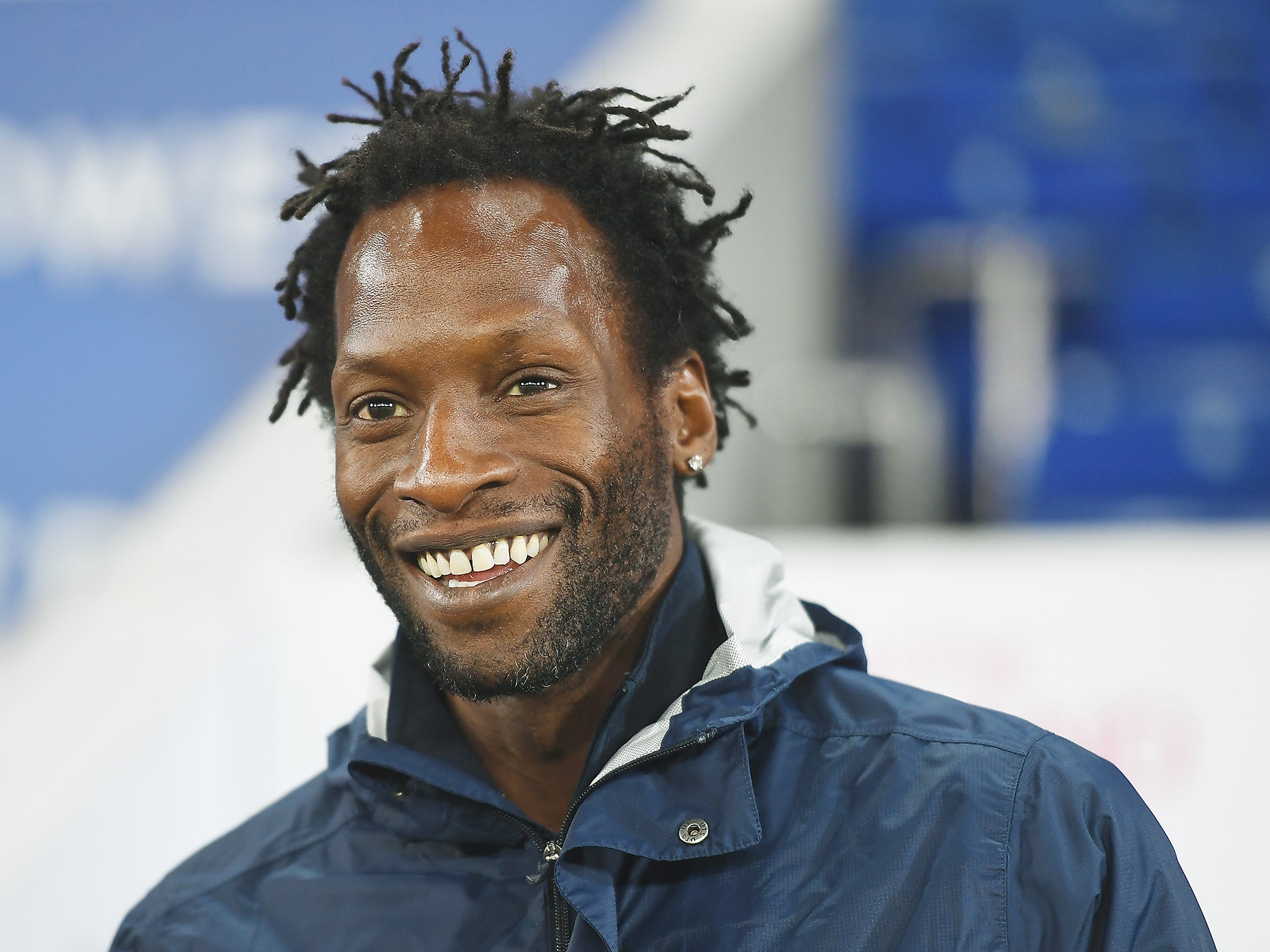Your support helps us to tell the story
From reproductive rights to climate change to Big Tech, The Independent is on the ground when the story is developing. Whether it's investigating the financials of Elon Musk's pro-Trump PAC or producing our latest documentary, 'The A Word', which shines a light on the American women fighting for reproductive rights, we know how important it is to parse out the facts from the messaging.
At such a critical moment in US history, we need reporters on the ground. Your donation allows us to keep sending journalists to speak to both sides of the story.
The Independent is trusted by Americans across the entire political spectrum. And unlike many other quality news outlets, we choose not to lock Americans out of our reporting and analysis with paywalls. We believe quality journalism should be available to everyone, paid for by those who can afford it.
Your support makes all the difference.A life in football led Ugo Ehiogu from the muddy wastes of Hackney Marshes to a goal-scoring role in Sven-Goran Eriksson’s first match as manager of England.
Ehiogu was only 44 and coaching Tottenham Hotspur’s Under-23 squad when he suffered a cardiac arrest at the training ground. He died the following morning, prompting a flood of tributes from former team-mates.
Among those recalling the contrast between Ehiogu’s uncompromising style as a centre-back and his gentle demeanour away from sport were the goalkeepers he helped to protect at his two Premier League clubs, Aston Villa and Middlesbrough.
Mark Bosnich, the former Villa and Australia keeper, remembered Ehiogu as “a tremendous player and an even better man”. His compatriot Mark Schwarzer, once of Middlesbrough, added: “Ugo was a great guy to be around, so enthusiastic and so full of life.”
As a teenage player in his native east London, Ehiogu represented his school, district and county. Unlike several friends, he was overlooked by professional clubs and played for the Hackney team Globe Town in the Tower Hamlets Sunday League.
When I interviewed Ehiogu for The Independent in 1995, he credited their manager, Bobby Spink, with converting him “from a lazy midfielder into a hard-working defender”. He cited three defenders who used anticipation and skill – Alan Hansen, Des Walker and Ronald Koeman – as role models.
Globe Town’s president recommended him to Brian Talbot, then manager of West Bromwich Albion, who signed him as an apprentice after a trial. He made his Albion debut at 17, but was disappointed by the full-time terms offered and exercised his right to reject them.
Ron Atkinson, Villa’s new manager, signed Ehiogu in the summer of 1991 for an initial £40,000, rising to £200,000. He was thrown in at the deep end, playing right-back against champions Arsenal, but had to wait 15 months to play in his preferred position in central defence.
His pace, aerial power and strong tackling led to his becoming a fixture in Villa’s back three alongside Paul McGrath and current England manager Gareth Southgate. During his nine years at the club, he was a member of the League Cup-winning side of 1996. At Middlesbrough, where he was reunited with Southgate, he earned another League Cup winner’s medal in 2004.
Ehiogu won four England caps. He received his first call-up – against Nigeria, his family’s country of origin – in 1994. His first appearance came in 1996, when he replaced Tony Adams against China, while another substitute’s cameo, against Spain at Villa in 2001, saw him score with a header before conceding a penalty. To his and Eriksson’s delight, Nigel Martyn saved it.
After an unfulfilling loan spell with Leeds, he left Teesside for Glasgow in 2007, scoring for Rangers with an overhead kick on his Old Firm debut against Celtic. He later played for Sheffield United before retiring in 2009 and joining Spurs’ Academy staff in 2014. Apart from family and football, music was Ehiogu’s passion and he co-founded the Dirty Hit independent record label.
Ugochuku Ehiogu, footballer and coach: born London, 3 November 1972; married Gemma Coleman 2005 (one son, one daughter); died London 21 April 2017.

Join our commenting forum
Join thought-provoking conversations, follow other Independent readers and see their replies
Comments